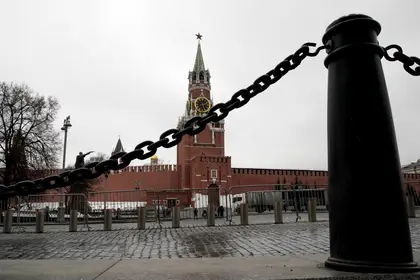For the six months of the war against Ukraine – from February 24 to August 24 – Russia earned at least €158 billion in revenue from fossil fuel exports, which indicates the need for immediate tightening of economic restrictions on the Russian Federation.
“To shed light on who purchases Russiaʼs oil, gas and coal, and how the volume and value of imports have changed since the start of the invasion, the Centre for Research on Energy and Clean Air has compiled a detailed dataset of pipeline and seaborne trade in Russian fossil fuels,” reads the report of the Finland-based Centre for Research on Energy and Clean Air (CREA).
JOIN US ON TELEGRAM
Follow our coverage of the war on the @Kyivpost_official.
It is noted that Russia earned EUR 158 billion in revenue from fossil fuel exports in the first six months of the war (February 24 to August 24).
In particular, the EU imported 54% of this, worth approximately EUR 85 billion, being the largest fossil fuel importer, followed by China (EUR 34.9 bln), Turkey (EUR 10.7 bln), India (EUR 6.6 bln), Japan (EUR 2.5 bln), Egypt (EUR 2.3 bln), and South Korea (EUR 2 bln).
Fossil fuel exports have contributed approximately EUR 43 billion to Russia’s federal budget since the start of the invasion, helping fund war crimes in Ukraine.
“Surging fossil fuel prices mean that Russia’s current revenue is far above previous years’ level, despite the reductions in this year’s export volumes,” the report reads.

Up to 12,000 North Korean Troops Transferred to Russia, Satellite Images Show
It is noted that Russia is finding ways to circumvent the imposed restrictions and reroute oil supplies by refining, blending, transshipments and ship-to-ship transfers.
“Stronger rules and enforcement are needed to prevent crude oil and oil products containing Russian oil from entering markets with bans in place,” CREA says.
In this context, it is underscored that the EU and the UK need to start using their leverage in global shipping.
“The EU must ban the use of European-owned ships and European ports for shipping Russian oil to third countries, while the UK needs to stop allowing its insurance industry to participate in this trade,” the experts note.
Moreover, CREA explains that it is essential for Europe to accelerate energy saving measures and to accelerate the deployment of clean energy, heat pumps, electric vehicles, and other technology to replace Russian fossil fuels.
As a reminder, oil and gas exports are considered one of the main sources of Russian revenues.
You can also highlight the text and press Ctrl + Enter






